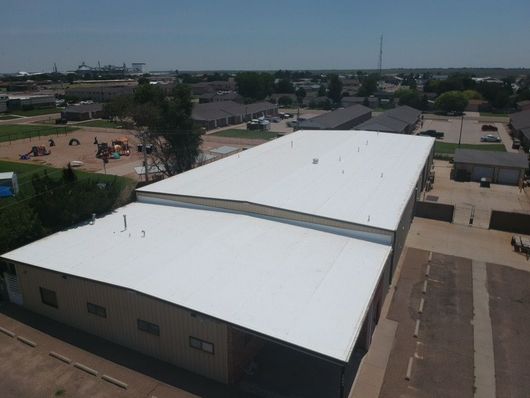For any commercial property, the roof is essential. It not only shields your building from the elements but can also help lower repair expenses and boost energy efficiency. In this guide, we’ll delve into the best commercial roofing materials and explain why investing in quality roofing is key to ensuring the success of your property.
Assessing Your Commercial Roofing Requirements
Commercial roofs have unique requirements compared to residential roofs. Factors such as climate, building type, and business operations play a major role in determining the best roofing system. Whether you’re managing a warehouse, office, or retail space, identifying your specific needs will help you select the right roof for your property.
Top Commercial Roofing Materials
There are a few top roofing materials commonly used for commercial properties. Each comes with its unique advantages, depending on your needs and budget.
Option 1: Metal Roofing
Metal roofing is highly favored for commercial properties because of its long-lasting durability and energy-saving features. Available in materials such as steel or aluminum, metal roofs can handle extreme weather and provide excellent leak protection. Plus, their reflective surface can reduce cooling costs during the hotter months.
2. Flat Roofs
Flat roofing systems are popular for commercial buildings due to their affordability and simple installation. These roofs are particularly suitable for buildings with contemporary architecture. Materials like TPO, EPDM, and PVC are commonly used, offering excellent waterproofing and insulation. Proper maintenance and drainage are essential for their longevity.
Shingle Roofs for Commercial Properties
While less common for large commercial buildings, shingle roofing can be an excellent choice for smaller commercial structures or buildings that require a more traditional aesthetic. Asphalt shingles are affordable, easy to install, and available in a variety of styles and colors, though they may not offer the same long-term durability as metal or flat roofs.
Roof Installation: Best Practices and Maintenance Tips
Once the roofing material is chosen, it’s time for installation. Hiring a qualified and licensed contractor guarantees proper installation, which is vital for preventing leaks and ensuring your roof’s longevity.
Ongoing maintenance is critical to keeping your roof in top shape. Regular inspections—especially after severe weather—are recommended. Check for any damage like missing shingles, cracks, or water pooling. Clean gutters and remove debris regularly to prevent potential long-term issues.

The Importance of Investing in High-Quality Roofing
Investing in a quality roof pays off in the long run. A well-constructed roofing system shields your property from leaks, which can lead to costly damage to your building and assets. Additionally, it improves energy efficiency, cutting down on operating expenses and boosting your property's value. Proper maintenance ensures you avoid future costly repairs.
Conclusion: Choosing the Right Commercial Roofer
Choosing the right roofing contractor is just as important as selecting the best materials. Look for a licensed, experienced roofer who understands commercial properties and can help you select the best solution based on your business needs. A great contractor will also guide you through the installation and maintenance process to keep your roof in top shape for years to come.
Are you ready to upgrade your commercial roof? Contact us today to learn more about our roofing solutions and get a free consultation!
#CommercialRoofing #RoofingMaterials #BusinessProtection #MetalRoofing #FlatRoofing #RoofInstallation #EnergyEfficiency #RoofMaintenance